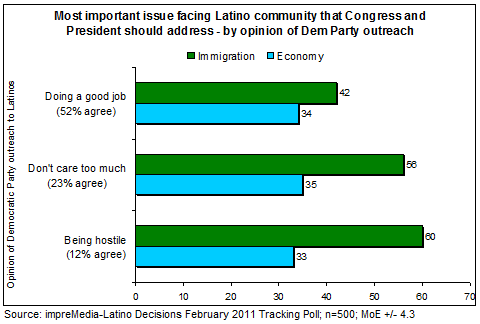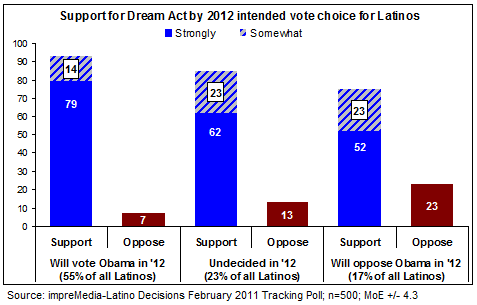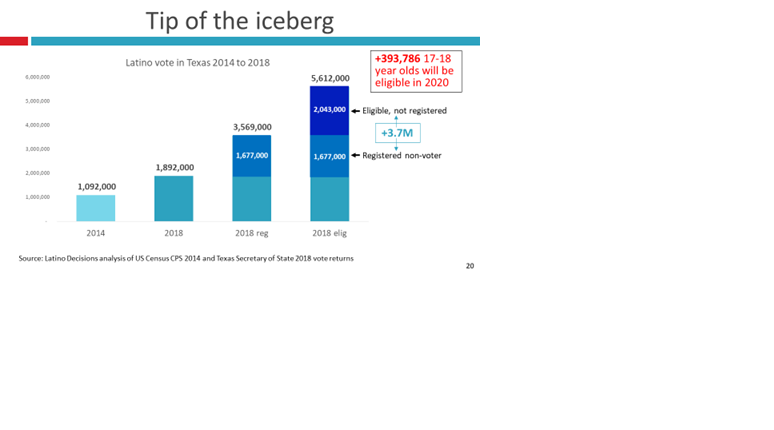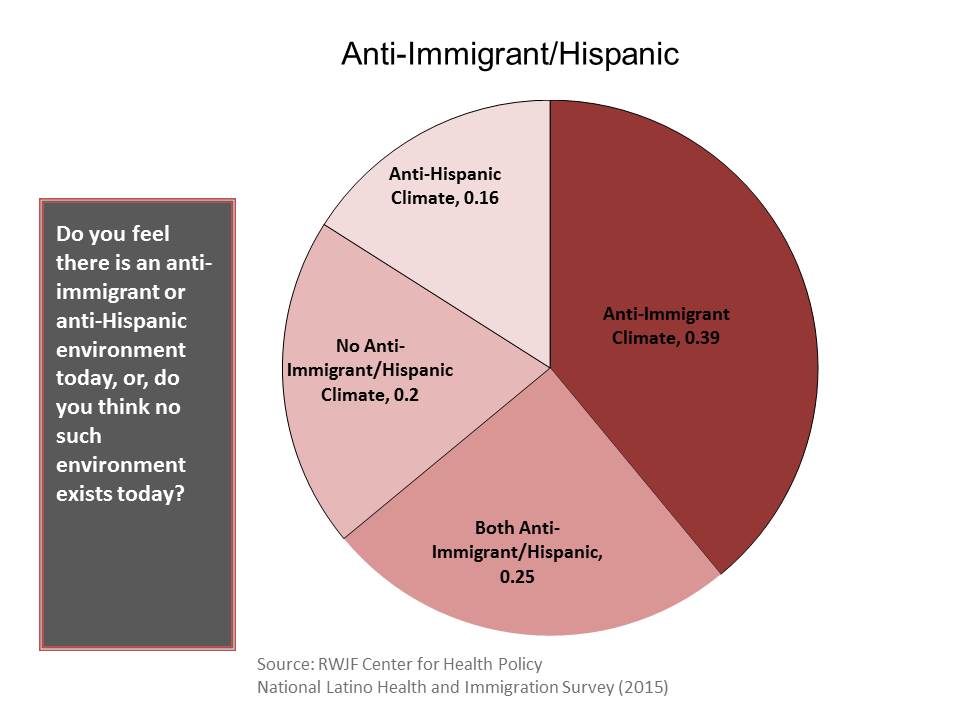In December 2005 H.R. 4437, aka the “Sensenbrenner Bill” was passed by the House of Representatives and the issue of immigration became front page news in American politics. The bill asked for the immediate deportation of all undocumented immigrants, and would make it a crime to assist undocumented immigrants in any way, punishable by up to 5 years in prison. The immigrant rights marches that occurred in the Spring of 2006 further highlighted the political importance of immigration reform within the Latino community, and with an estimated 5 million taking part in the rallies, demonstrated the mobilizing capacity of immigration as an issue.
Since 2006, immigration reform has continually been cited as one of the top issues of concern in the Latino community, and in the 2010 election immigration continued to play a major role in the minds of Latino voters. Latino Decisions election eve poll found that 60% of Latino voters stated immigration was “one of the most important issues” on election day 2010. Despite the salience of immigration, it was the one issue in which goodwill was not found during the lame duck session in December 2010, and the DREAM Act failed to pass in the Senate. Thus, the DREAM Act and immigration reform at large, still looms for the President, the Congress, and Latino electorate.
While the economy is an obvious issue of concern for Latinos and all Americans in 2011, the February 2011 impreMedia-Latino Decisions tracking poll found strong evidence that immigration in general, and the DREAM Act specifically, continue to rank high on the Latino agenda. Overall, 47% of Latino registered voters stated immigration was currently the most important issue facing the Latino community, while 85% said they supported the DREAM Act.
Though the vote on the DREAM Act is in the past, it could still loom large in 2011-12 as Latino voters ask both parties what they have accomplished on this very important issue. Indeed, there is some evidence in the impreMedia-Latino Decisions tracking poll that the lack of progress on immigration may be hurting opinions of the Democrats, not just Republicans. Voters were asked to assess how good or poor of a job each party was doing in their outreach to Latino voters. Among those who said the Democratic Party was doing a good job reaching out to Latinos, 42% cited immigration as their top concern for lawmakers to address. In contrast, those who rated Democratic outreach unfavorably were more likely to state immigration was the number one priority. Among those who said the Democrats don’t seem to care about Latinos, 56% called immigration the top issue, and among those who thought the Democrats were being hostile to Latinos, 60% said immigration was the most important issue for Congress and the President to address. By comparison, opinions of Democratic outreach do not appear to be correlated at all with concern over the economy, perhaps because considerable attention is being paid to the economy. In contrast, the major accomplishments on immigration over the past two years have been to approve $600 million for border security coupled with a significant growth in raids and a“dramatic increase” in deportations.

Looking to 2012, it is clear that immigration and the DREAM Act will still be on the minds of Latino voters. As a recap, 60% said immigration was one of the most important issues in the 2010 election, and 47% said it was the top issue in February 2011 – more than any other issue. Not surprisingly, support for the DREAM Act is strongest, indeed almost universal, among those who say they will vote for Obama in 2012. We broke out support for the DREAM Act by intended vote choice in 2012 and found regardless of how Latinos will vote, a very strong majority support the DREAM Act. Among Obama voters, 79% strongly support and 14% somewhat support the DREAM Act – that’s 93% support for seeing this bill passed among the President’s Latino base. Further, among those who say they are undecided 62% strongly support DREAM with 23% somewhat support, all told 85% in favor. Even among those who plan to vote for a GOP candidate in 2012, Republican contenders should take note, that Republican leaning Latinos also supported the DREAM Act by a big margin: 52% strongly support and 23% somewhat support, totaling to 75% approval of the bill.

As the 2012 presidential election already starts to take shape, we will hear candidates make all sorts of statements about immigration reform, whether they are promises of reform or attacks on undocumented immigrants. Either during the primary debates or the general election, the candidates will be asked if they support or oppose legislation like the DREAM Act, and without a doubt, Latino voters will be paying close attention.


